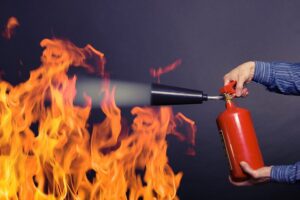Lift Inspections for Churches
LIFT INSPECTIONS AND MAINTENANCE
If your building has a lift, stair lift, platform lift or even a dumb waiter, you should know about Lifting Operations and Lifting Equipment Regulations, 1998 (LOLER).
These regulations state requirements for anyone who owns or is ‘responsible for the safe operation of a lift used at work’. In this case, the term ‘work’ includes any location that any type of work is taking place, be it paid or any kind of volunteer work. This means that churches, community centres and the like are also included.
If you have a lift, you have a legal responsibility to make sure that any lifts are maintained and in safe working order.
This maintenance must be done by a ‘competent person’, perhaps an annual service carried out by a lift maintenance company. This might involve replacing worn or damaged parts, checking and topping up any fluids and making any adjustments etc.
Lifting equipment is defined any machinery or apparatus used for carrying and lowering loads.
LOLER states that any passenger lifting equipment in a workplace requires a thorough inspection every six months, and any goods only lift be inspected every twelve months. Inspections must be carried out at these statutory intervals, regardless of how frequently or infrequently the lift is used.
Inspections are completely separate from any maintenance or service and should only be carried out by persons that are competent and have ‘sufficient technical and practical knowledge’ of the lift. This person should also be impartial and independent from the person or company who carried out the initial maintenance or service work. This is to allow for a completely objective assessment of the lift.
You can read more about what a ‘thorough’ lift inspection should include on the Health and Safety Executive website. We particularly find this document for ‘Lift Owners’ very useful.
It is absolutely imperative that anyone responsible for a lift complies with LOLER. Not only is it the law, or a matter of the lift users’ safety, but it is also a requirement as regards your insurance. Insurers take compliance with regulatory bodies such as LOLER very seriously and will not accept ignorance as a reason for non-compliance. You simply could not expect your insurance policy to act upon any claims made for injury or damage as a result of a lift that has not been well maintained and passed an inspection.
It’s worth noting that LOLER also covers:
Minibuses and vehicles that have wheelchair lifts
Passenger lifts
Service lifts
Construction hoists
Goods lift
Vehicle tail lift
Scissor lift
If you’re not sure whether your lift or lifting equipment is covered under LOLER , then you can check here: FAQs – Lifting – Equipment and machinery (hse.gov.uk)
We are always happy to arrange an Engineering Policy to cover your lift inspection for you. Just give us a call on 01564 730 900 to discuss your requirements, and allow us to answer any other questions you may have.






